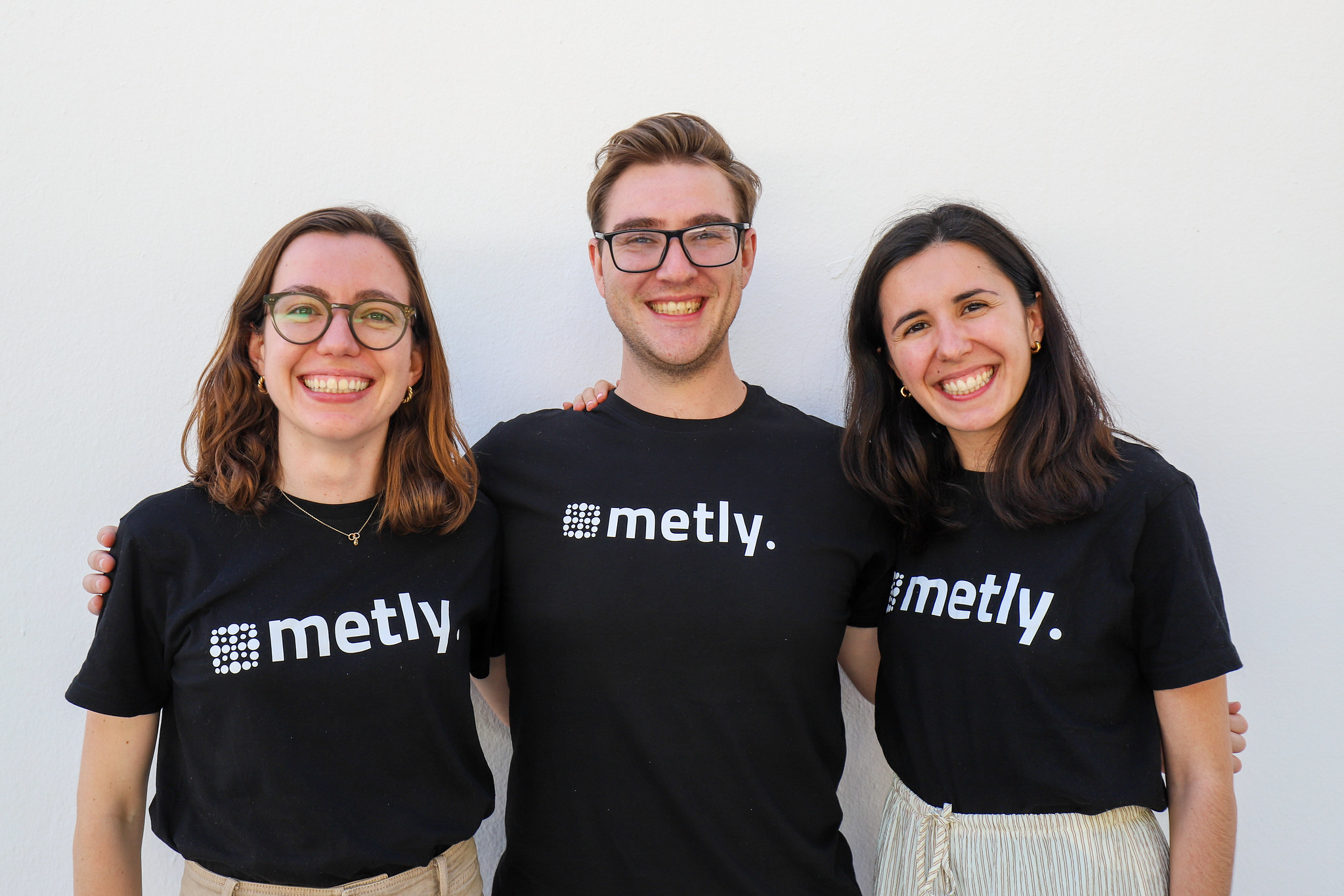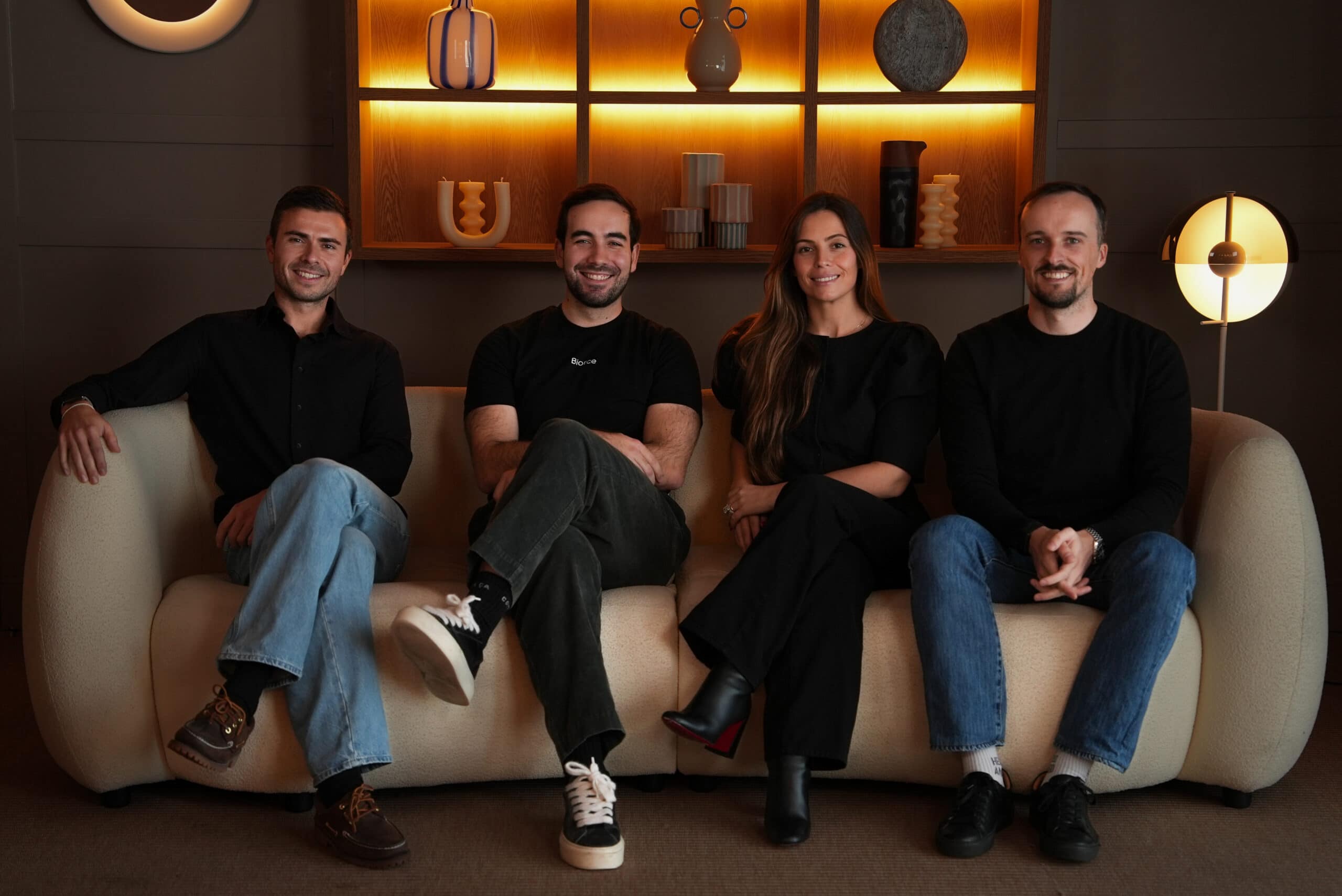Despite the progress made in recent years, startups founded by women continue to face barriers in Spain, including greater difficulty in accessing financing. This undoubtedly represents a huge challenge for a more balanced ecosystem, which is why, as of 2024, only 17% of founders are women, compared to 83% men, according to El Referente’s Startup Ecosystem report.
In a new milestone for women-led startups, Catalan company Metly has closed a pre-seed round of €520,000, exceeding its initial target. Following the recent round, this is the largest round of funding for a women-led startup in 2025 to date.
The founding team at Metly has highly complementary experience, ranging from software development to in-depth knowledge of the pharmaceutical sector. Although it is not a company founded exclusively by women, co-founders Anna Torrents and Lydia Taranilla are now leading figures in Spanish female entrepreneurship thanks to their shared mission of offering an innovative solution to a complex industry such as pharmaceuticals. Together with Graeme Harris, they founded Metly in 2024, an AI-powered SaaS platform to accelerate the search for licensing and manufacturing agreements in the pharmaceutical industry.
“In business development teams in the pharmaceutical sector, one of the biggest challenges is the fragmentation of information. Identifying relevant opportunities in a given market and then finding the right partner to carry them out requires hours of manual research, scattered conversations, and a lot of intuition. It is an inefficient, slow, and often unscalable process,” Anna Torrents, co-founder and CEO of Metly, explained to Novobrief.
Faced with these challenges, the company saw a clear opportunity: to help these teams work more strategically, using technology to automate the detection of new opportunities and facilitate access to the right partners. “Our platform uses artificial intelligence to analyze large volumes of data and transform that information into actionable recommendations. This not only saves time, but also allows us to discover options that would otherwise go unnoticed,” said Torrents.
Regarding the difficulties faced by the ecosystem in highlighting the potential of women-led startups that are advancing against all odds, Torrents mentions that the ideal would be to focus on highlighting the potential of projects and teams regardless of whether they are led by men or women. “Hopefully, the time will come when this question is no longer necessary, and we can simply talk about good projects and good teams, regardless of who leads them. But in the meantime, I do believe that cases like ours help to highlight that there are many women building ambitious, technological companies with a global impact,” she said.
From Spain to the world’s major markets
After embarking on this mission, the startup has been successful, attracting the attention of both pharmaceutical companies that are now customers and investors who have placed their trust in the project.
“The possibility of applying technology to such a critical and, until now, manual process in a huge industry like pharmaceuticals was precisely what sparked investors’ interest from the outset,” said the CEO.
Currently, the platform has more than 35,000 licenses from more than 550 companies globally and is expanding into the US and Chinese markets.
The startup, which has been supported by Barcelona Activa since its inception, said the pre-seed round was led by Encomenda and included participation from Ona Capital, Dozen Investments, and several strategic business angels, including Roberto Urbez, former vice president of Spain and Portugal at Bristol Myers Squibb.
The funds will enable Metly to grow in key markets, expand its team, and refine its technology.
“At such an early stage, our conviction about the future of the pharmaceutical industry and a multidisciplinary founding team have been key to communicating that long-term vision to investors and demonstrating our ability to execute. We have already secured our first customers in Europe, which validates both the market need and the value proposition we are building,” concluded Anna Torrents.







